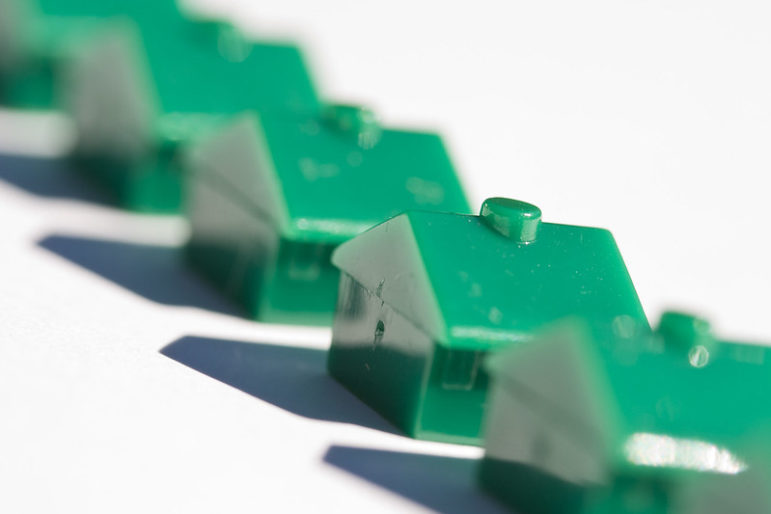
A record 22 million people have filed for unemployment in the last four weeks as a result of COVID-19. For those who live paycheck to paycheck, loss of employment has caused financial ruin and crippling anxiety about whether they will have a place to live once the temporary eviction and foreclosure moratorium is lifted in mid-June. A common refrain we hear is “I can’t afford my rent or mortgage now. And I can’t afford it later. What will I do?”
The public narrative has pitted tenants against landlords, but the need for tenant and homeowner relief is often inextricably linked.
New York City has one of the most expensive rental and housing markets. At the New York Legal Assistance Group (NYLAG), we represent both tenants and homeowners. The majority of our clients are people of color (POC) who have long been victimized by racist housing practices such as “redlining” and sub-prime loans. As the city has rapidly gentrified, many Black and Latino tenants face tremendous displacement pressures and housing insecurity due to bullying by corporate landlords. These are not just housing justice issues, but also issues of racial justice.
That’s why we are calling for bold action by our elected officials to protect both groups.
A rent strike in attempt to pressure Governor Cuomo to cancel rent may seem like the ideal answer for tenants. As the saying goes, “Desperate times call for desperate measures.” Organizers argue that withholding rent en masse will shift responsibility to landlords and government, which will convince elected officials to cancel the rent.
However, we cannot advocate to “cancel rent” as a singular measure without considering the unintended, yet foreseeable, harm to other marginalized groups. Equity requires that we cultivate solutions that meet people where they are and those solutions may be different from one group to another. Most of our homeowner clients do not have home equity, and even those who do are “cash poor,” relying on rent to meet their basic needs.
Canceling rent without other protections in place could hurt small landlords, many who share the same demographic as affected tenants: Black and Latino people with low-income. For many of our homeowner clients, they invested all their resources to get their first home—it is their American Dream and only asset of value.
There is a bill in Albany that has real potential to protect the homes of millions during this crisis. The NYS Tenant Safe Harbor Act would prohibit landlords from evicting tenants for non-payment of rent that accrued from March 7 until six months after the state of emergency ends. The bill does not cancel the rent because the landlord would still be able to obtain a money judgment against the tenant through a special proceeding in Housing Court. Some minor modifications to the bill are necessary to guard against dishonest accounting of arrears and prevent landlords from applying tenant payments in a manner that frustrates the purpose of the law.
On the homeowner side, banks expect that homeowners will pay back every penny of missed payments within a few months. That’s not feasible. There is no reason whatsoever why this public health emergency should result in a wave of foreclosures that could be even worse than the Great Recession of 2008-10. Our clients want to pay their mortgages. Banks can be directed to extend the term of mortgages and/or put a balloon payment at the end of a loan term.
 CityViews are readers’ opinions, not those of City Limits. Add your voice today!
CityViews are readers’ opinions, not those of City Limits. Add your voice today!
New York State has taken some steps to achieve justice for homeowners affected, but the federal government must now use the power of the purse to effect justice. If the federal government bails out banks, they must attach strings. Otherwise there will be an epidemic of mortgage defaults, effectively rendering many individuals and families homeless. In the past, lenders received bailout monies and then were allowed to decide unilaterally whether or not to grant homeowners relief. Excuses like investor restrictions, title issues, or having too high an income from new employment were used by banks to deny homeowners much-needed relief.
Because state governments lack access to fiat currency, their ability to provide legislative solutions that cost money are severely constrained. The Rent and Mortgage Cancellation Act, very recently introduced by Minnesota Congresswoman Ilhan Omar, is a bold and welcome federal legislative response to the crisis that helps renters, homeowners, and larger owners of real property alike by providing much-needed, long-term protections for tenants of landlords that access federal relief funds.
While COVID-19 has caused tremendous loss of life and economic devastation that disproportionally affects communities of color, the stay-at-home order was unquestionably the right move. We have started to flatten the curve, but with dire economic consequences.
Tenants and homeowners shouldn’t be punished with homelessness for complying with government orders. Our government must do everything in its power to ensure that housing is preserved for all.
If you are a tenant or homeowner and need our help, visit nylag.org.
Jonathan Fox, Esq. is director of NYLAG’s Tenant’s Right Unit where he represents New York City tenants with low incomes and strives to preserve safe and affordable housing for its clients by defending them in eviction cases and by asserting their rights affirmatively under tenant protection laws. Rose Marie Cantanno, Esq. is associate director of NYLAG’s Consumer Protection Unit—Foreclosure Project, where she represents homeowners in all aspects of foreclosure litigation and advocates for homeowner protections on both the state and city level. NYLAG (New York Legal Assistance Group) is a leading legal services nonprofit that offers free legal services and financial counseling to people experiencing poverty.









One thought on “Opinion: Don’t Cancel Rent Without Protecting Homeowners”
What a joke, the justification for helping both tenants and landlords should not be based on demographics but what is right for all Americans no matter the color of skin.